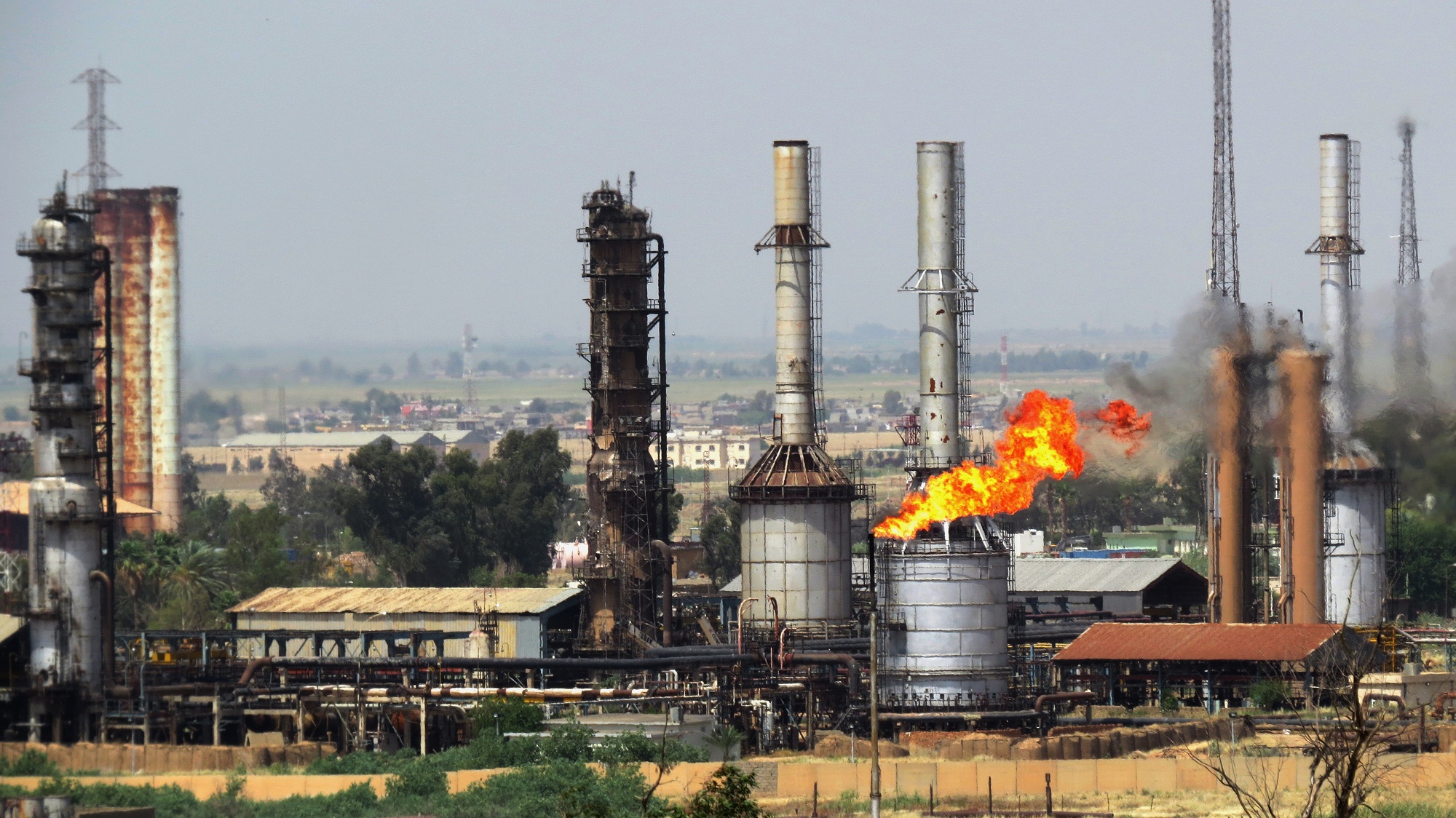Kirkuk's crude oil exports via Turkey fell by more than a million barrels in August compared to June, reducing revenues to half, figures by the Iraqi ministry of oil show, though unaffected by protests across August which escalated to armed clashes during the last week, mainly in Baghdad.
Last August, 1.1 million barrels of crude oil were exported from Kirkuk oil fields to Ceyhan port in Turkey, earning more than $100 million.
Kirkuk's oil exports and revenues decreased by more than half compared to July, when it has pumped 2.35 barrels, earning more than $ 240 million.
Kirkuk's oil exports to Turkey declined in July compared to 2.9 million barrels in June, earning about $346 million, in addition to about 300,000 barrels by tanker to Jordan, earning more than $32 million.
Exports increased in May to more than three million barrels, earning $335 million, with about 354,000 barrels exported to Jordan for $34 million.
Exports to the world port in April 2022 were more than 2.991 million barrels, earning more than $304 million, while more than 299,000 barrels were exported by tanker to Jordan, earning more than $26 million.
The ministry did not mention the amount of oil exported to Jordan by tanker in July and August.
Kirkuk hit peak of its production in February 2021 when it has pumped 3,8 million barrels for $213M, the highest production capacity in 2021 while the lowest was in November when it has dropped to two million barrels only with 150 million USD revenues.
There are five main crude oil producing fields in Kirkuk province; Avana, Bay Hassan, Baba Dome, Jambur and Khabaza, under the control of the Iraqi government's Northern Oil Company.
Kirkuk, Iraq’s second largest reserves, located 238 kilometers north of Baghdad, is an ethnically mixed province for 1,7 million Kurds, Arabs, and Turkmens. It has long been at the center of disputed territories between Baghdad and the Erbil.
Iraq’s crude oil exports last August hit almost 102 million barrels in August 2022, earning $9.8 billion American Dollars, as a barrel was traded for USD96.
An Iraqi official said output and exports were unaffected by violent clashes that were largely contained to the capital Baghdad across last week.
The exports of crude oil in March have passed 100 million barrels, the highest in the last five decades, generating over $11 billion, according to figures of the state-run State Oil Marketing Organization SOMO compared.
OPEC's second-largest oil producer aims to raise operational export capacity in Basra to 3.45 million barrels per day (bpd) from 3.3 million bpd.
The delay to its original plan stems from a lag in obtaining necessary approvals and in finalising tenders for the upgrade work, an Iraqi oil representative told Reuters in June.
Iraq’s oil reserves are considered the world's fifth-largest with 140 billion barrels, the sole source of income for the country.





